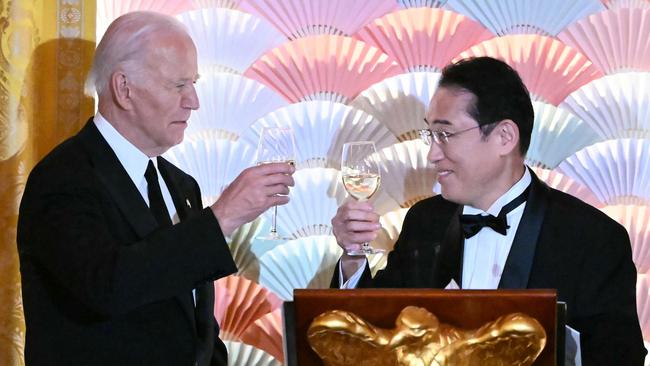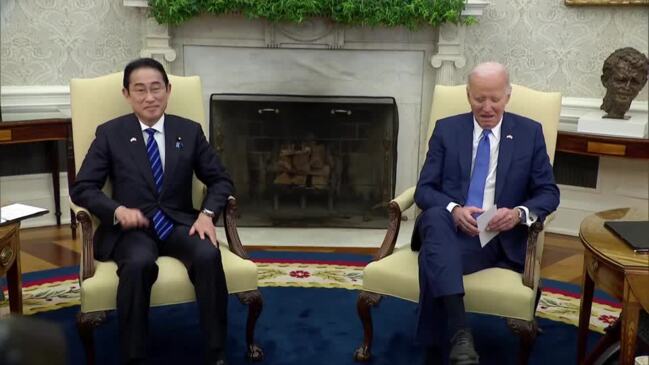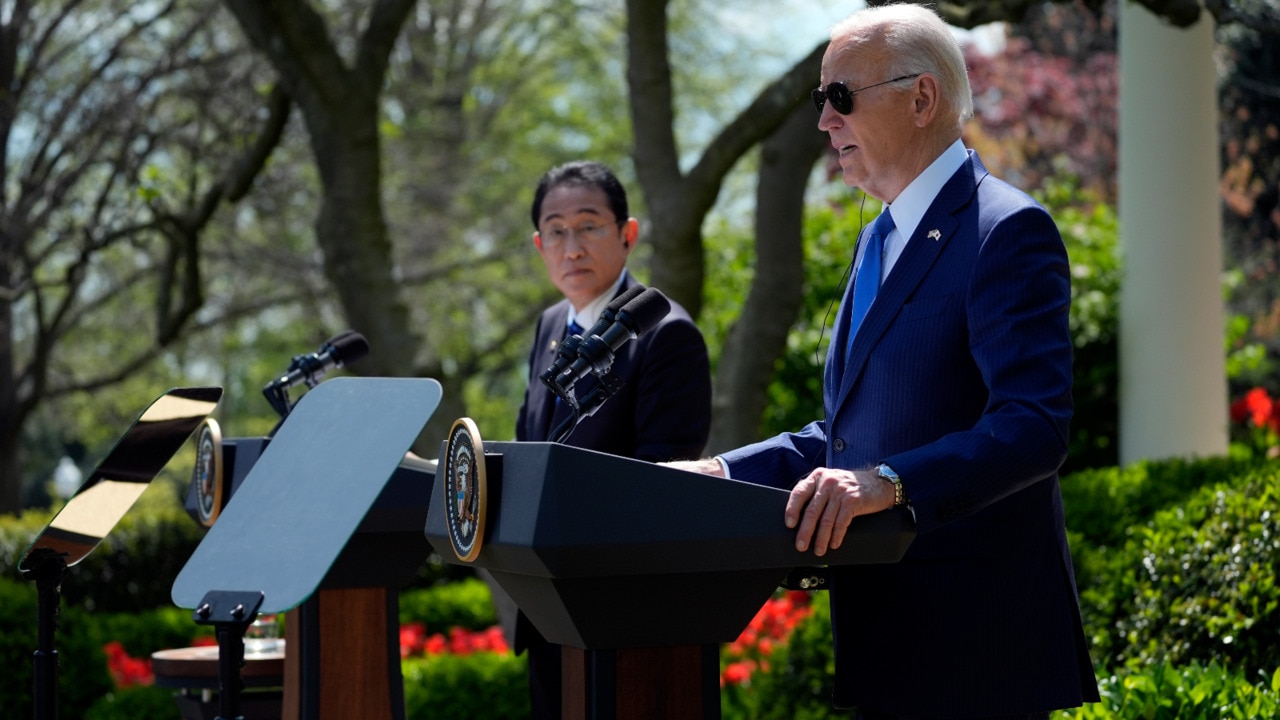US-Japan defence strategy talks flag ADF Patriot gains
The Australian Defence Force is a step closer to acquiring the US’s legendary Patriot missile defence system under a new joint air defence strategy with the US and Japan.

The Australian Defence Force is a step closer to acquiring the United States’ legendary Patriot missile defence system under a new joint air defence strategy with the US and Japan.
Joe Biden announced the new trilateral air defence network after a historic White House summit with Japanese Prime Minister Fumio Kishida that sought to “flip the script” on China.
It will give Australia access to US and Japanese expertise and hardware for the ADF’s promised air and missile defence system, which is in the early stages of development in partnership with Lockheed Martin.
“Today we announce our vision to co-operate on a networked air defence architecture among the United States, Japan, and Australia to counter growing air and missile threats,” Mr Biden and Mr Kishida said in a joint statement.
“We will explore enhanced co-operation, including missile defence information sharing to counter growing air and missile threats.”
Last year’s Defence Strategic Review exposed the vulnerability of Australia’s Top End bases and deployed forces from air and missile attack. It warned an integrated air and missile defence shield was a “critical capability” required by the ADF.
DSR co-lead Peter Dean said the new trilateral strategy was “a major win for Australia”, putting it on course to acquire Patriot aerial interceptor missiles.
“We are so far behind the bell curve on air and missile defence compared to Japan and the United States it’s not funny,” Professor Dean told The Australian.
“Japan brings a lot to the party because it deals with air and missile defence every day because of North Korea, and because of the consistent incursions by China into Japanese exclusive economic zones Okinawa and the Senkaku Islands.
“So they’ve got a very sophisticated air and missile defence architecture and experience … shared with the United States.”
Japan is a major operator of Raytheon’s PAC-3 Patriot missile batteries, and is the only country licensed to build the missiles outside the US.

“I would be very, very surprised if we don’t end up with something like the Patriot air missile battery,” Professor Dean said.
Mr Biden and Mr Kishida also announced regular trilateral exercises with the UK, and will meet with Philippine President Ferdinand Marcos Jr on Friday AEST for talks on China’s aggressive conduct in the South China Sea.
The leaders reiterated Japan’s consideration as a partner in AUKUS’s “Pillar II” advanced technology program, and pledged to push ahead with Australia on the development of unmanned aerial systems including combat drones.
The talks followed a joint South China Sea patrol by US, Australian, Japanese and Filipino warships on Sunday to assert The Philippines’ territorial rights. A senior Biden administration official said the announcements were part of an attempt to “flip the script and isolate China”.
“When you have, like we did this week, the United States, Japan, Australia and The Philippines doing an exercise together, when you have the (trilateral meeting) on Thursday, the country that’s isolated is China,” the White House official said.

Lockheed Martin signed a $765m deal with Defence last year to deliver the command and control elements of an integrated air and missile defence capability under a program designed by the ADF known as AIR6500.
Another program, known as AIR6502, will green-light the acquisition of a medium-range ground-based air defence system for the ADF. A decision is due soon on the procurement, with Patriot missiles tipped as the likely winning technology.
Australian forces supported a recent missile defence test by the US Missile Defence Agency off Hawaii. It was the agency’s “most complex test to date against a priority threat target”, demonstrating its ability “to detect, track, engage and intercept” a medium-range ballistic missile.
The Patriot system has been used and updated for decades, proving itself in multiple conflicts including the Ukraine and current Israel-Hamas wars.






To join the conversation, please log in. Don't have an account? Register
Join the conversation, you are commenting as Logout